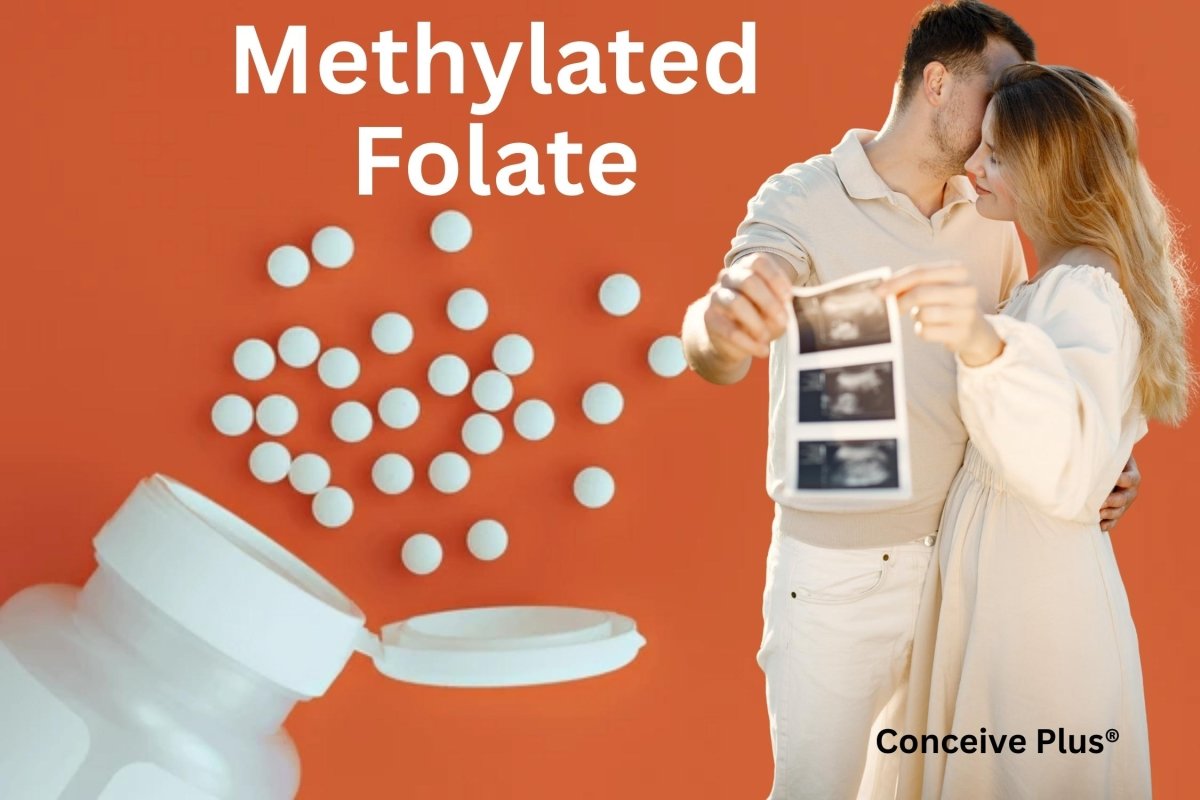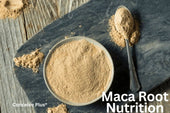Methylated Folate: Benefits, Differences, and Implications

Folate, part of the B vitamins, is essential for DNA synthesis, red blood cell formation, and neurological support. Though it occurs naturally in leafy vegetables, beans, and citrus fruits, many people rely on supplements for optimal levels. Standard formulas often use folic acid, a synthetic variant needing multiple metabolic steps. Meanwhile, a more readily absorbed alternative, methylated folate, has drawn attention for possible advantages over conventional sources.
Key Biological Functions
This nutrient supports various critical processes by delivering methyl groups for gene regulation, protein synthesis, and detoxification. Adequate intake helps reduce the risk of birth defects related to the fetal brain and spine, making it especially crucial for women of childbearing age. It also assists red blood cell production and may reduce homocysteine, an amino acid linked to heart concerns. Because these roles can profoundly influence health, experts often stress the importance of balanced intake [1].
Genetic Influences on Metabolism
Some variations in the methylenetetrahydrofolate reductase (MTHFR) gene may limit how effectively folic acid converts into active forms. Individuals with reduced enzyme function might struggle to maintain sufficient levels for optimal physiological processes. This has led some healthcare providers to recommend methylated folate for people with certain polymorphisms, ensuring more direct usage. Recognizing genetic factors can help refine supplementation plans for improved outcomes.
Distinguishing Different Variants
Although all forms of this vitamin aim for similar endpoints, their capacity to support metabolic pathways can vary. Folic acid requires multiple transformations before playing its part in vital reactions. In contrast, methylated folic acid, often identified as L-5-methyltetrahydrofolate, bypasses several steps, potentially benefiting those with limited enzyme activity. Folinic acid is another option, though it too needs specific conversions. Understanding these nuances can guide more informed supplement choices.
If you’d like to explore in greater depth the nuances of folate vs folic acid prenatal options and make an informed choice for your supplementation, be sure to check out our article "Folate vs Folic Acid Prenatal: Making the Right Choice."
Potential Advantages
Proponents say that minimizing extra metabolic conversions may lower the presence of unmetabolized residues and improve tolerance. Preliminary studies also suggest that an active form might aid mood balance and cognition by supporting neurotransmitter production and managing homocysteine. Nonetheless, further clinical research is required. In practice, healthcare professionals often evaluate lifestyle habits, genetic background, and health objectives when deciding on the ideal supplement form [2].
Influence of Lifestyle Factors
Age, stress levels, and pregnancy all affect folate needs. Expectant mothers in particular require higher amounts to support healthy fetal development. Older adults can experience reduced absorption, and people with chronic conditions may benefit from a consistent supply of this nutrient. Accounting for these elements with professional guidance helps optimize intake. In some scenarios, an active version may be advantageous if enzyme function is compromised.
Insights into Absorption
Studies indicate that methylated folate may offer more efficient uptake than forms requiring multiple enzymatic conversions. This could be most relevant for individuals with significant MTHFR variations. However, experts caution that supplements should not replace whole foods that deliver a wide spectrum of nutrients beyond folate alone. A balanced diet remains central to comprehensive well-being.
Emerging Perspectives on Mental Health
Folate plays a role in the synthesis of neurotransmitters that regulate mood. Some evidence links low folate to an increased risk of depressive symptoms or a poorer response to antidepressants. Because genetic differences might hamper the conversion of folic acid, some practitioners advocate an active supplement form for at-risk patients. While these observations are promising, more studies are necessary to draw firm conclusions [3].
Ongoing Research Directions
Recent work focuses on epigenetic mechanisms, examining how folate-related methylation patterns shape gene activity. Some investigations posit that maintaining sufficient levels of an active folate form may support healthy cell growth and immune responses. Researchers are also exploring whether direct bioavailability might help people with cardiac risk factors. As knowledge develops, professional guidelines could evolve to incorporate individualized approaches.
Dietary Sources and Modern Fortification
Leafy greens, asparagus, lentils, citrus fruits, and broccoli naturally supply folate. Meanwhile, many cereals and breads are fortified with folic acid, contributing to lower deficiency rates in regions with mandatory fortification. However, those interested in targeted supplementation sometimes opt for products that contain a pre-methylated derivative. Reading labels for precise ingredient information can help consumers align choices with their health needs.
General Intake Recommendations
Adults typically need around 400 micrograms of dietary folate equivalents per day. Pregnant women often increase this to about 600 micrograms. Adolescents experiencing rapid growth and older adults facing absorption issues might also need adjustments. Genetic considerations further complicate these calculations, with some providers suggesting tests for MTHFR status or homocysteine levels before prescribing an active supplement. Though more involved, these steps allow for more accurate nutritional strategies [4].
Possible Interactions and Cautions
Although well-tolerated by most, excessive folate can mask a vitamin B12 deficiency, permitting nerve damage to progress unnoticed. Certain malignancies might also necessitate special monitoring, since folate supports cell replication. Because B vitamins work synergistically, balancing folate with B12, B6, and others is crucial. A holistic approach prevents accidentally exacerbating another deficiency while trying to correct one.
If you're keen to understand when opting for prenatal with folate not folic acid could better suit your needs, be sure to read our article "When Should You Choose Prenatal with Folate Not Folic Acid?" for further guidance.
Cardiovascular Connections
Elevated homocysteine has been associated with vascular damage and increased atherosclerosis risk. Sufficient folate intake helps convert homocysteine into methionine, potentially protecting heart health. Individuals carrying MTHFR variants may find methylated supplements particularly beneficial in achieving healthy homocysteine levels. Still, good nutrition, physical activity, and other lifestyle factors remain pivotal for preventing cardiovascular disease.
Synergy with Complementary Nutrients
Folate frequently collaborates with other B vitamins in multiple metabolic pathways. For instance, vitamins B12 and B6 join forces to keep homocysteine in check. If one nutrient is lacking, others cannot perform optimally. Some experts recommend a B-complex regimen, ensuring that all required components are present in proper ratios to promote overall function [5].
Healthy Aging Factors
As adults age, nutrient absorption and utilization often decline, making it harder to maintain key vitamin levels. Folate contributes to cell renewal and may influence cognitive health. Certain studies suggest that deficiency could accelerate aspects of mental decline, though further data is needed to confirm these links. Including adequate folate might support energy, memory, and overall resilience in older populations. If enzyme function is diminished, methylated folate may offer an extra edge. Combined with a varied diet and medical checkups, targeted supplementation can help people stay active and engaged later in life.
Looking Ahead
Growing interest in nutrigenomics suggests the future may see more precise strategies for vitamin intake. If research confirms that specific groups benefit substantially from methylated folate, standard guidelines may shift to recommend personalized supplementation. As diagnostic tools improve, many individuals will gain insights into their genetic predispositions and adjust nutrient intake accordingly. This reflects a broader trend toward customizing health interventions rather than relying on uniform recommendations.
Strategies for Lifelong Well-Being
Plentiful consumption of vegetables, beans, and fruits remains a foundational way to secure natural folate. Yet modern lifestyles sometimes disrupt consistent dietary habits, making supplements a practical addition. Genetic testing is increasingly accessible, revealing whether certain enzyme variants hinder folate conversion. Choosing an active supplement may bolster metabolic health for those with such variants. By coupling whole foods, informed supplementation, and regular checkups, people can enhance vitality across every stage of life.
Considerations for Specific Demographics
Athletes engaged in intense training may deplete B vitamins more rapidly. Chronic illness sufferers may also need extra support if absorption is impaired. Vegans and vegetarians typically monitor B vitamin status carefully due to limited dietary sources of some variants. In these contexts, methylated folic acid can help bridge gaps, aiding in processes like red blood cell formation and DNA repair [6].
Healthy Aging Revisited
Longevity research increasingly highlights the interplay between nutrition and extended health spans. Maintaining robust folate levels may be one factor that helps stave off cognitive and physical decline. While few nutrients alone can halt aging, supporting methylation and cell regeneration through adequate intake is considered beneficial. Methylated forms reduce reliance on an individual’s enzyme efficiency, a potential advantage when general metabolic capacities diminish over time.
Additional Myths and Clarifications
Some individuals assume that higher doses automatically yield superior results, but that perspective overlooks potential imbalances with other nutrients. Others claim synthetic variants are uniformly ineffective, ignoring evidence that many do well with conventional options. A related myth is that genetic testing always mandates an active form, when in reality not everyone with a variant faces problems. Also, asserting that folate alone can reverse chronic diseases oversimplifies matters, since genuine wellness hinges on many lifestyle factors. Moreover, misconceptions about immediate effects can lead individuals to abandon long-term strategies, hindering real progress. In truth, a sensible plan relies on proven data and personal circumstances, maximizing benefits while reducing unnecessary complications.
The Bottom Line
Methylated folate sits at the heart of numerous essential biochemical pathways, highlighting its importance for anyone aiming to optimize their dietary strategy. Recognizing the complexity of individual genetic variants, lifestyle factors, and overall nutrient needs underscores that there is no one-size-fits-all solution. The best outcomes often emerge from a thoughtful combination of whole food sources, knowledgeable supplementation, and professional guidance. By tapping into both historical insights and the latest scientific developments, people can make nuanced decisions regarding their health. Though questions remain about exactly how far the benefits extend, the growing research base fuels a sense of promise. As our knowledge continues to expand, the possibility of achieving robust well-being through targeted nutrition becomes ever more tangible.
References
- Carboni L. Active Folate Versus Folic Acid: The Role of 5-MTHF (Methylfolate) in Human Health. Integr Med (Encinitas). 2022 Jul;21(3):36-41. PMID: 35999905; PMCID: PMC9380836.
- Shelton RC, Sloan Manning J, Barrentine LW, Tipa EV. Assessing Effects of l-Methylfolate in Depression Management: Results of a Real-World Patient Experience Trial. Prim Care Companion CNS Disord. 2013;15(4):PCC.13m01520. doi: 10.4088/PCC.13m01520. Epub 2013 Aug 29. PMID: 24392264; PMCID: PMC3869616.
- Merrell BJ, McMurry JP. Folic Acid. [Updated 2023 Aug 8]. In: StatPearls [Internet]. Treasure Island (FL): StatPearls Publishing; 2025 Jan-. Available from: https://www.ncbi.nlm.nih.gov/books/NBK554487/
- Greenberg JA, Bell SJ, Guan Y, Yu YH. Folic Acid supplementation and pregnancy: more than just neural tube defect prevention. Rev Obstet Gynecol. 2011 Summer;4(2):52-9. PMID: 22102928; PMCID: PMC3218540.
- Kennedy DO. B Vitamins and the Brain: Mechanisms, Dose and Efficacy--A Review. Nutrients. 2016 Jan 27;8(2):68. doi: 10.3390/nu8020068. PMID: 26828517; PMCID: PMC4772032.
- Hanna M, Jaqua E, Nguyen V, Clay J. B Vitamins: Functions and Uses in Medicine. Perm J. 2022 Jun 29;26(2):89-97. doi: 10.7812/TPP/21.204. Epub 2022 Jun 17. PMID: 35933667; PMCID: PMC9662251.































